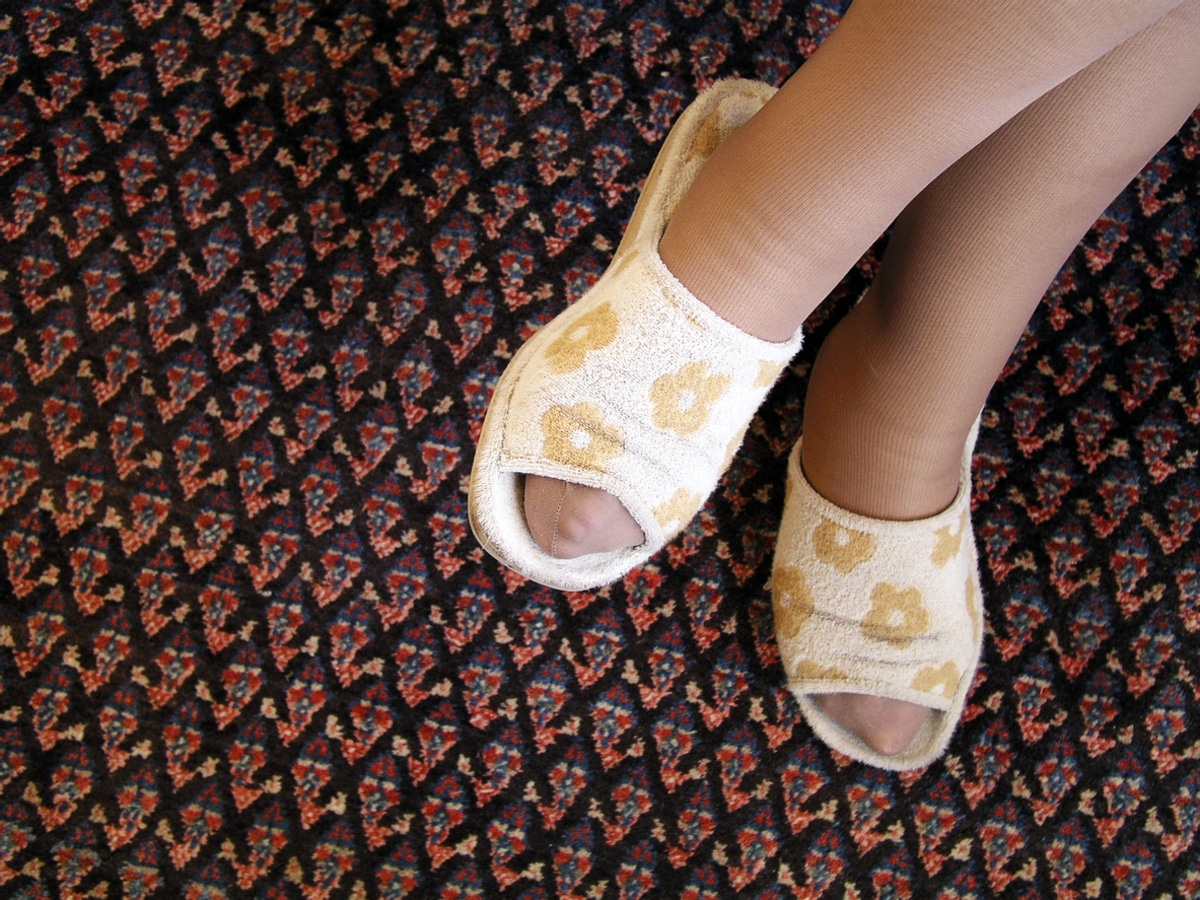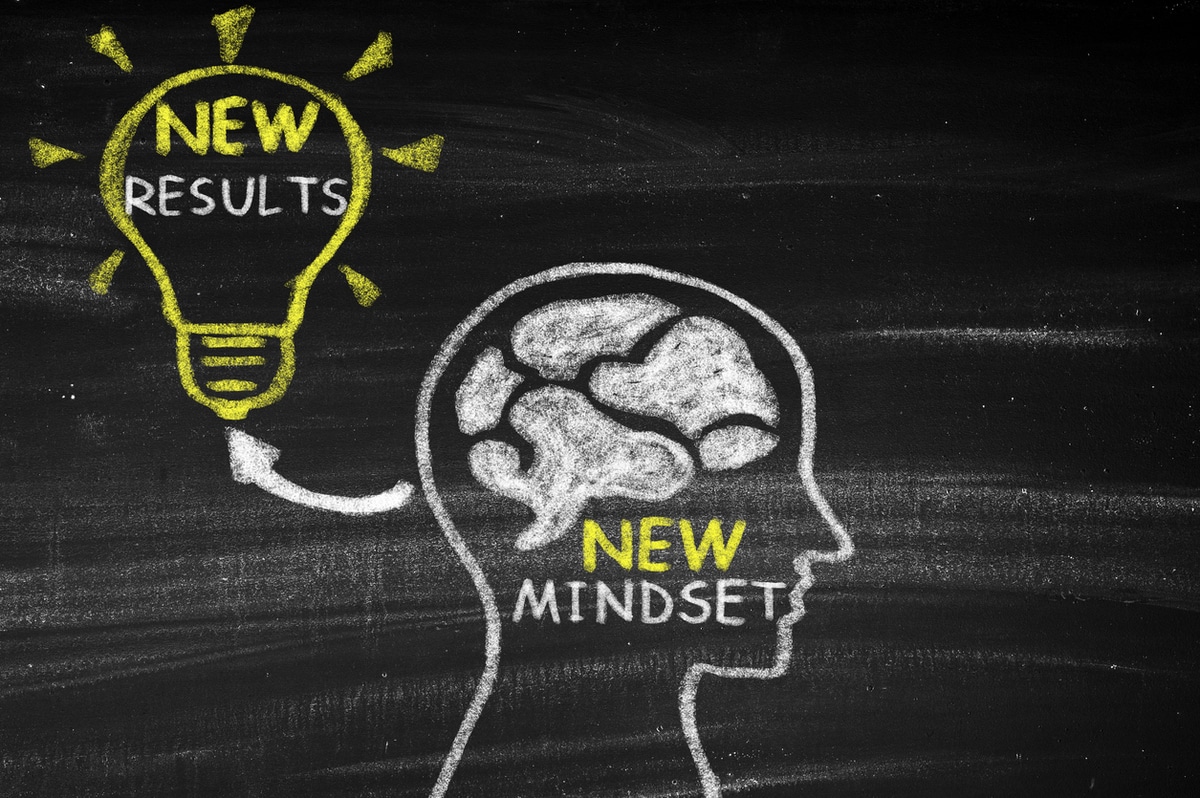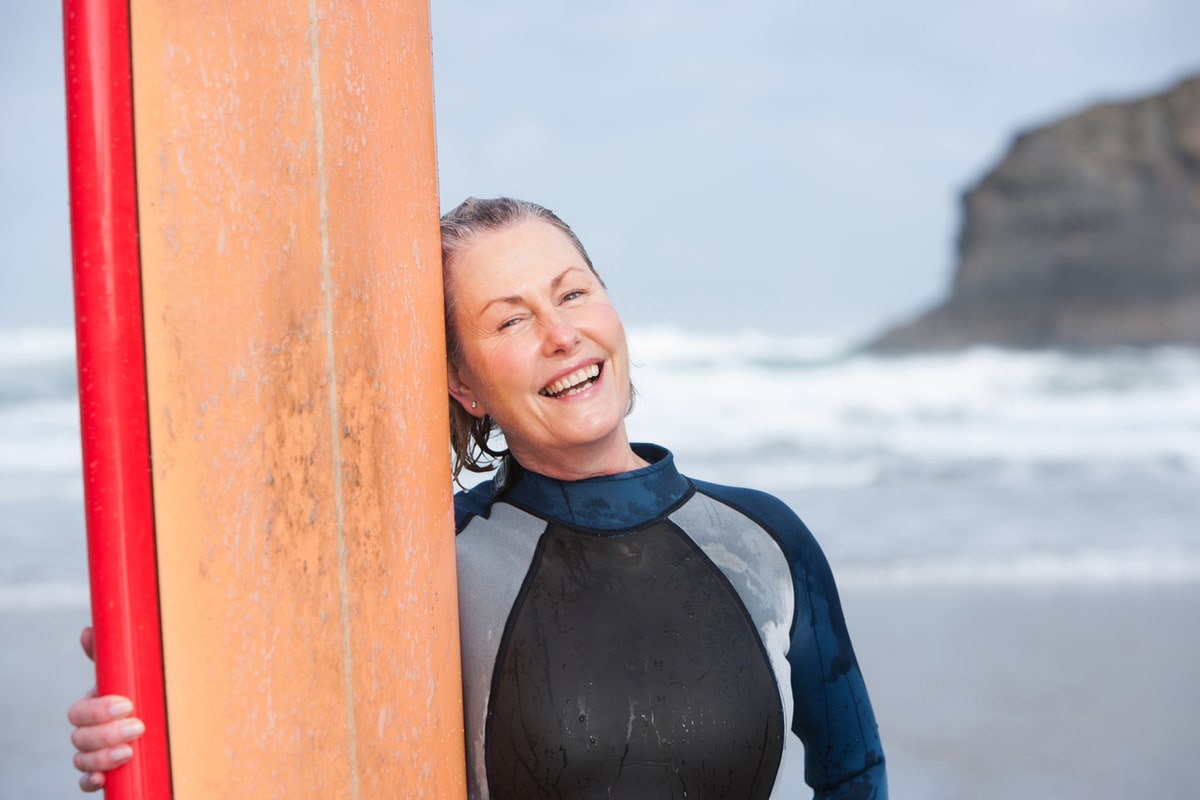When I was a kid, I remember thinking that old people looked SO OLD. I realize now that there’s a phenomenon when you’re less than 10 years old that everyone over the age of 20 looks ancient. Although looking back, there was more to it than that. Now I realize that in the 1980s, people I experienced looking and acting old were often only in their 40s or 50s.
My grandparents were a perfect example of old age. As kids, when we visited, I remember my grandfather being a grumpy old man with not much tolerance for rambunctious children, and my grandma was similarly cantankerous. She was hunched over and moved slowly while wearing one of a variety of house dresses or elastic waist polyester. Their house smelled like liver and onions, and despite my grandma’s best efforts, my grandpa was constantly sneaking food that was not part of his diabetic diet. We’d sit around their living room having boring conversations as I stared at my grandma’s therapeutic shoes and tan pantyhose peeking out from the bottom of her skirt. In retrospect, they were only in their 50s and already resigning themselves to a life of chronic sickness, boredom, lack of movement, and frailty.
I had to ask myself, at what age did they accept this as their fate? When did they stop moving quickly and fluidly, trying new things, taking risks, and living an active and productive life? Was it society that reinforced old age, or was it a personal mantra that sealed their fate? Would it be necessary for me to accept the same, or does mindset have more control over this than many of the physical aspects of age?
How Mindset Controls The Aging Process
According to the National Library of Medicine, aging is generally perceived as a biologically determined process; the literature increasingly points to the importance of psychological factors in the aging process, specifically age-related stereotypes or cognitive mindsets. Such stereotypes reflect self-perceptions and others’ perceptions about the aging process and can strongly influence health and life satisfaction, specifically through self-fulfilling prophecy mechanisms.
Suddenly, the reality of my grandparents looking and acting old makes perfect sense! Both societal and psychological influences were major factors in their resignation to old age type of behaviors, but we don’t have to succumb to these same perceptions.
Mindset Determines Your Outcome
Studies have shown that changing your mindset can promote changes in the body of older adults, and it’s even better if our minds and attitude are oriented toward youth even as we age. It is possible to look and feel healthy, stay active, and continually plan and accomplish new things. Understanding the control that your mind and perspective have on your physical body makes it possible to set aside the idea that your age somehow becomes an excuse for lack of action.
How To Stop Making Excuses
You can take charge of your life, but there are times when it’s necessary to break old patterns to change your ways. You may find yourself needing some work in this area before setting new goals. How can you stop using age as an excuse if that’s something you’ve already done? Here are some things you can do to stop making excuses:
- Stop using the past as a reference point for the future.
- Take responsibility for your own actions.
- Learn to try again, even after a failure.
- Focus on your strengths and then build on them.
- Identify your specific weaknesses, then work on them.
- Stop comparing yourself to others.
The comparison game can be especially detrimental when you might perceive that you have a long way to go to keep up with someone you know who is far more active and adventurous. While allowing their energy to inspire you is helpful, certainly don’t let it discourage you from your own unique process.
Focus On What You Want To Accomplish
I truly believe that one of the things my grandparents lost sight of was what they wanted to accomplish in life. They may have believed that they had already done what they set out to do and relaxed into the idea of retirement. It was a retirement that looked very different than the future that I planned for myself. While I do recognize and honor my inevitable aging process, I focus on the things I have yet to accomplish. A person who breeds life and sets goals. Some of the things on my list include:
- Taking a boxing course, staying strong and agile, and making it fun!
- Learning a new language.
- Better relationships with my adult children.
- Learning to surf.
- Writing a book.
- Having and maintaining a group of supportive friends for both social and business inspiration.
The Takeaway: Make An “Age Is No Excuse” List Of What You Want To Accomplish
Just as my list is unique to me, your ideas, dreams, and goals are unique to you and what you have yet to accomplish. It’s time to turn daydreams into reality by making a list of things that you want to make happen. Be sure to include on your list not only what you want to do but also add at least one action step of how you will make that happen. For example, like me, if you want to learn to surf, you first need to plan a trip to a location that allows you to do that! Your first action step may be to book the trip or to begin saving the money to make that trip possible.
Create an “Age Is No Excuse” journal and refine and adjust your list and action items at least once per month. An active and productive mind and a person making plans, setting goals, and trying new things, is healthier both mentally and physically. The results of a healthier life will benefit not only you but also everyone in your life!
Read Next:
20 Journaling Prompts for Mental Health
4 Ways to Make Friends that Fit Your Lifestyle at Any Age
Top 3 Ways To Leverage Your Feminine Energy
The post When it Comes to Excuses, Stop Blaming Your Age appeared first on Prime Women | An Online Magazine.




